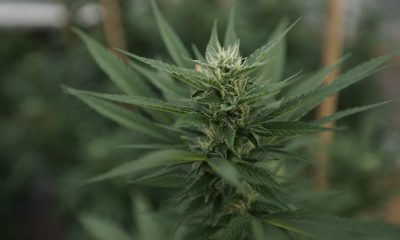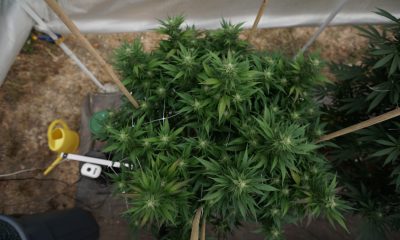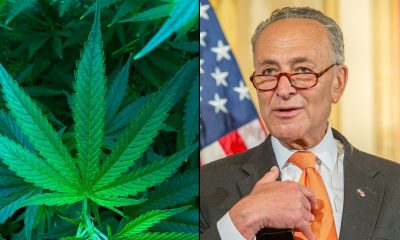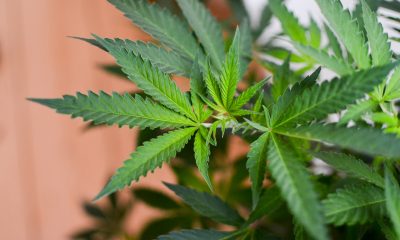Culture
World Anti-Doping Agency Experts Say Marijuana Use Violates The ‘Spirit Of Sport’ And Makes Athletes Unfit Role Models
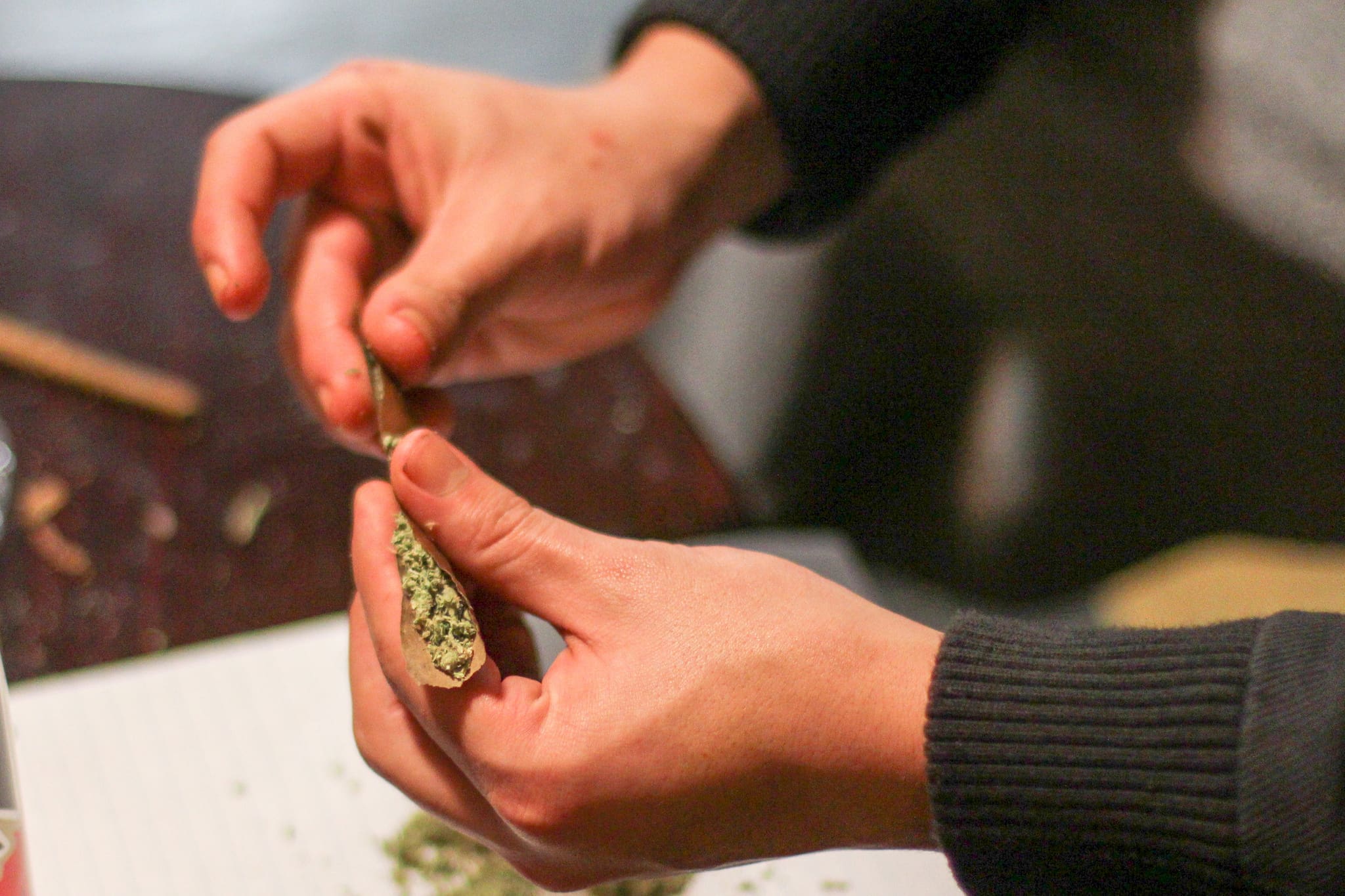
Members of a World Anti-Doping Agency (WADA) panel say that marijuana use by athletes violates the “spirit of sport,” making them unfit role models whose potential impairment could put others at risk.
In an editorial published in the journal Addiction, several members of WADA’s Prohibited List Expert Advisory Group summarized the reasons that the body decided to continue prohibiting cannabis use by athletes in competitions last year amid growing calls to end the policy.
Perspectives were “mixed” over whether marijuana “enhances or has the potential to enhance sport performance,” they wrote. And the group also acknowledged that athletes have reported that cannabis benefits them by “facilitating recovery and reducing pain.”
But in the end, they said that the use of marijuana in competitions violates ethical standards, justifying the ban.
Specifically, the editorial says that cannabis consumption runs counter to the “spirit of sport,” which “encompasses a number of universal values of sport, and four aspects that were particularly relevant to the discussion on cannabis remaining in the list.”
Here are the factors that the WADA officials said apply to marijuana, quoted directly from their paper:
- Excellence in performance: this could be undermined by consumption of cannabis during the in-competition period.
- Character and education: the role model aspect is not compatible with use of a substance that is still illegal in most parts of the world.
- Respect for rules and laws: its use violates the law in most countries in the world, in addition to Anti-Doping Organization rules in some instances.
- Respect for self and other participants: the welfare and safety of other participants may be compromised by impaired judgment associated with the presence of cannabis in an athlete in-competition.
The group also said there was considerable agreement within WADA about another criterion for inclusion in the banned substances list which concerns “actual or potential risk to the health of the athlete.”
They said that marijuana can cause physical impairment, as well as possible psychiatric symptoms, and that its use during adolescence can inhibit cognitive development. Members determined that the “potential of cannabis use to compromise the health and safety of the athlete qualifies the application of this criterion.”
While WADA decided to maintain the marijuana ban following a year-long review around this time last year, the editorial points out that the international organization had made other cannabis reforms, including raising the amount of THC that can be present in an athlete’s urine to account for consumption outside of competitions, which is not prohibited under its rules.
“Because of these high thresholds, primarily chronic, frequent cannabis users and athletes consuming high doses in-competition will be detected. Therefore, the cut-off generally will not affect the freedom of an athlete who wishes to legally consume cannabis outside of competition,” the group said. “Athletes who have a need for medicinal cannabis treatment should request a therapeutic use exemption.”
Advocates strongly urged WADA to enact a reform after U.S. runner Sha’Carri Richardson was suspended from participating in Olympics events due to a positive THC test in 2021.
Following that suspension, the U.S. Anti-Doping Agency (USADA) said that the international rules on marijuana “must change,” the White House and President Joe Biden himself signaled that it was time for new policies and congressional lawmakers amplified that message.
A WADA spokesperson said last year that, “to date neither the United States authorities nor the U.S. Anti-Doping Agency has requested the removal of cannabis from the Prohibited List.”
But USADA CEO Travis Tygart seemed to dispute that point. He said that, for decades, the organization “has advocated for WADA to change its approach to marijuana so a positive test is not a violation unless it was intentionally used to enhance performance or endangers the health or safety of competitors.”
USADA had previously expressed sympathy for the suspended runner, Richardson, and indicated that it may be time for a reevaluation of the marijuana prohibition—but it later followed up with a statement that went further by explicitly calling for a policy change.
The organization wrote that “President Joe Biden described the way forward best when he said” that the “rules are rules,” but stating that those regulations may need to be reevaluated.
As more states have moved to legalize cannabis, sports organizations at multiple levels have worked to enact reform.
For example, the National Basketball Association (NBA) and its players union recently signed a collective bargaining agreement that removes marijuana from the league’s banned substances list and lays out rules allowing players to invest in and promote cannabis brands—with certain exceptions.
The National Collegiate Athletics Association (NCAA) committee focused on promoting health and wellness for student athletes has proposed to remove marijuana from the organization’s banned substances list.
Earlier this year, Nevada sports regulators voted to send a proposed regulatory amendment to the governor that would formally protect athletes from being penalized over using or possessing marijuana in compliance with state law.
UFC announced in 2021 that they would no longer be punishing fighters over positive marijuana tests.
The National Football League’s (NFL) drug testing policy changed demonstrably in 2020 as part of a collective bargaining agreement.
NFL and its players union also announced in June that they are jointly awarding another round of funding to support independent research on the therapeutic benefits of CBD as a pain treatment alternative to opioids for players with concussions.
The New York Media Softball League (NYMSL)—which has teams representing The Wall Street Journal, High Times and BuzzFeed among its ranks—announced in July that it was launching a sponsorship deal with a Kentucky-based CBD company.
The idea behind the collaboration was inspired by moves by Major League Baseball (MLB) and certain teams like the Kansas City Royals and Chicago Cubs that have also recently partnered with CBD businesses.
MLB itself announced its league-wide partnership with a popular CBD brand last year. Charlotte’s Web Holdings, one of the most recognizable hemp-derived CBD companies in the country, signed the deal with league to become the “Official CBD of MLB.”
Photo courtesy of Martin Alonso.






